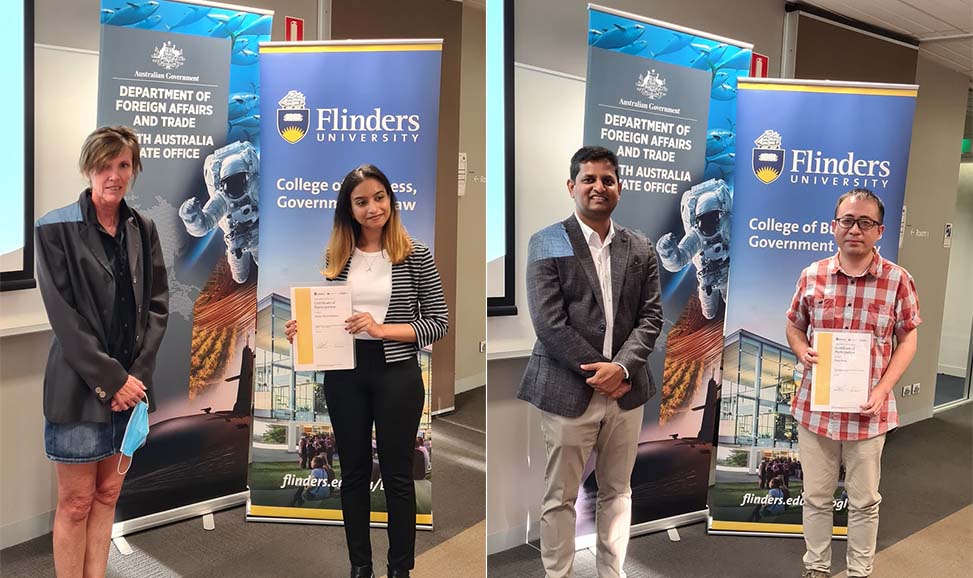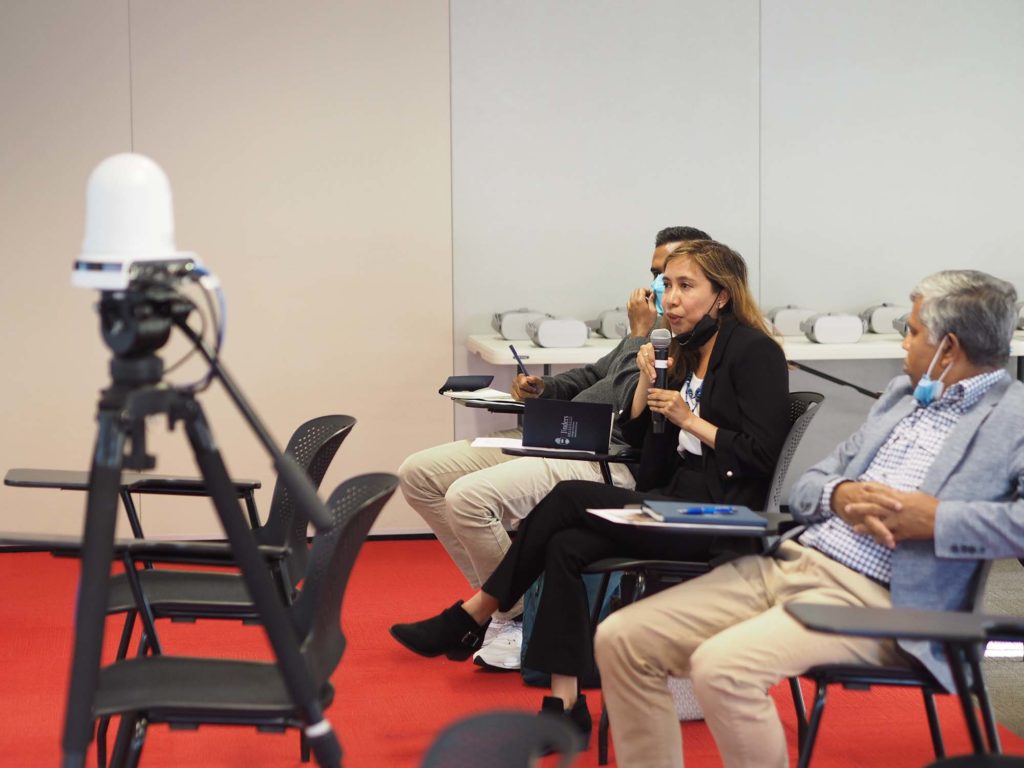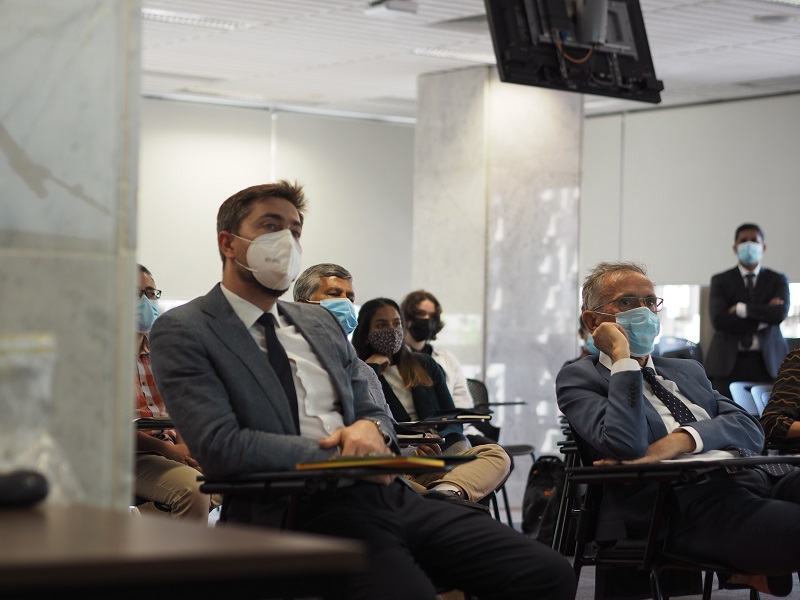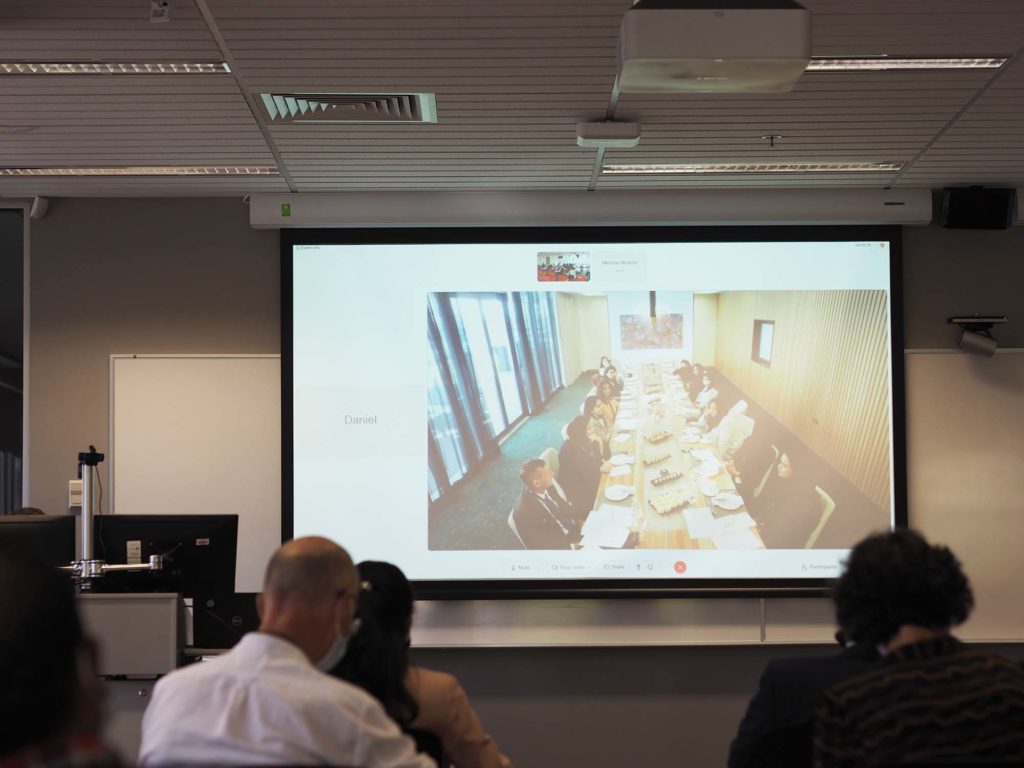
Over two days in March 2022, students from Flinders University joined their counterparts from Manipal University in Dubai, along with influential business leaders and academics from Australia and the United Arab Emirates, to further our understanding of gender equality in Arab nations, in a series of virtual events. The event was coordinated by Dr Ashok Manoharan and Associate Professor Jane Jones.
The event began with an overview of gender equality in the workplace in Australia, before prominent Australian-based expats from the Arab nations provided a cross-cultural perspective of Arab gender equality. We then crossed live to the Australian Pavilion, Expo 2020 Dubai where a panel comprising academics, and some of Dubai’s leading businesswomen with a passion for empowering women and youth; shared their stories and discussed opportunities for gender equality. Students from Australia and Dubai engaged with each other and the panel members in what was a lively, thought-provoking discussion on how culture intersects with gender to affect gender equality outcomes.

Gender equality in the UAE
Joining the panel discussion in Dubai were Dr Mona Al Ali, Badiri Academy; Ms Aysha Al Aydaroos, Masdar; Ms Shaikha Al Attas, Royal Solid Wood; and Dr Jason Fitzsimmons, Academic President at Manipal Academy of Higher Education, Dubai. Each of the panellists opened the discussions with an overview of their own experiences and perspectives on gender equality in the Arab workplace. The panellists noted that one of the key priorities in the United Arab Emirates since its formation was to increase literacy and provide educational opportunities for women.
Dr Mona mentioned that the UAE Government had taken responsibility for the education of women and has made significant improvements since launching the literacy strategy in 1975. Over the last few years, the government of the UAE has made gender equality and women’s economic empowerment a top policy priority, with the UAE performing well in the area of gender equality and ranking as a leading nation in gender equality in the region.

Ms Aysha discussed how Masar is addressing gender equality in the organization through offering mentoring and training programs to female employees, as well as promoting leadership initiatives for women. The panellists noted similar programs are also being promoted in many other UAE Government organisations. Ms Aysha also mentioned that in Masdar, women currently hold 24% of leaderships positions in the organisation. Ms Shaikha added that the UAE aims to have women in 30% of leadership roles by 2035. The government is also demonstrating the way forward by ensuring women are well represented in government roles. As an example, it was noted that women now comprise a significant proportion of the Federal National Council, the UAE’s consultative parliamentary body, in addition to having 9 women Ministers.
Discussion was held on fields where women are underrepresented in the region, which is being addressed. This includes upskilling women in the region in the area of technology, and encouraging women into entrepreneurial start-ups. In regards to education, both Dr Fitzsimmons and Dr Mona Al Ali noted that the UAE has performed well in this area, with women making up 70% of university graduates and 56% of UAE government university graduates being in the STEM field.

A virtual visit to Dubai
To mark International Women’s Day, students in Dubai visited the Women’s Pavilion, Expo Dubai 2020 which was streamed to their peers in Australia. Hellmann Worldwide Logistics, one of the world’s leading Dubai-based logistic companies, then provided students with a unique opportunity to visit its operations virtually, and hear from managers across the organisation on gender equality in a traditionally male-dominated logistics business. This virtual visit then provided the basis for students from Dubai and Australia to engage screen-to-screen, and enhance their understanding of how innovative companies can overcome barriers to promote gender equality.
The event concluded with students from UAE undertaking a desert safari while their peers in Australia experienced this event in virtual reality, whilst partaking in authentic Arabian feast.
The CAAR’s support was critical to the success of this virtual program. We are also grateful to DFAT for their support at the Australian Pavilion, 2020 Expo Dubai, the industry leaders and organisations who participated, and Manipal for their support.

